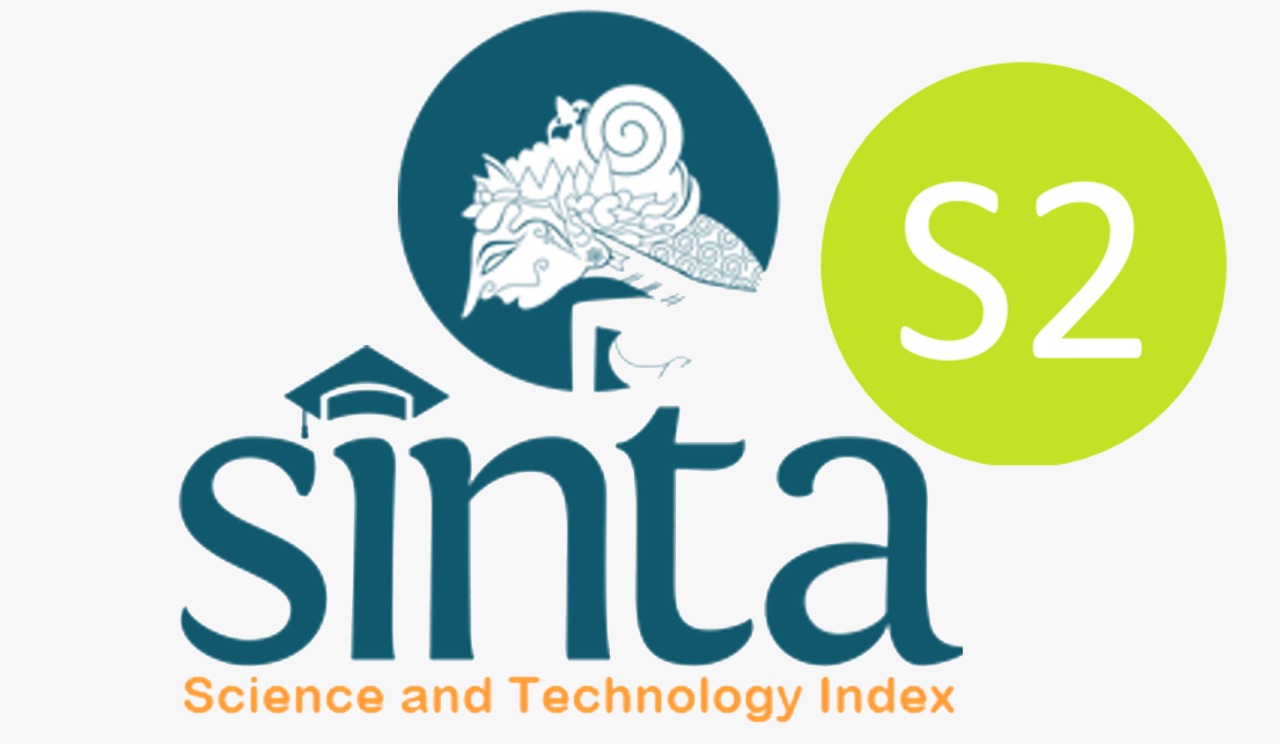DISAGGREGATED TRADE OPENNESS ON SHADOW ECONOMY IN NIGERIA: DOES INSTITUTIONAL QUALITY MATTER?
Downloads
Introduction: It is likely that enterprises and entrepreneurs will be encouraged to engage in the formal sector as economies integrate more fully into the global economy. Thus, we begin our investigation by looking at the relationship between Nigeria's shadow economy and disaggregated trade openness. Based on Nigeria's inadequate institutional quality, our second purpose is to conduct further research on the role institutional quality plays in moderating the relationship between its shadow economy and disaggregated trade openness between 1991 and 2018.
Methods: The fully modified ordinary least squares (FMOLS) and Granger causality methods are used in this paper to investigate the nexus and causal effect in time-series analysis.
Results: The coefficients of institutional quality, import-to-GDP ratio, government expenditure, and financial development all have an adverse impact on Nigeria's shadow economy. The inflation proxy with the consumer price index, economic growth, and the export-to-GDP ratio all improve Nigeria's shadow economy. The findings of interaction between the import-export ratio and the quality of institutions positively affect the Nigerian shadow economy. The pairwise Granger causality exercise comes after the regression analysis.
Conclusion and suggestion: The study concludes that the size of Nigeria's shadow economy is influenced by institutional quality, import trade, government expenditures, and financial development. Similarly, we find no causal relationship between disaggregated trade openness in Nigeria and institutional quality. As a result, policymakers and the country's government must act quickly and decisively to reduce the impact of informal activities on the country's economy.
Abu Alfoul, M.N., Khatatbeh, I.N. & Jamaani, F. (2022). What Determines the Shadow Economy? An Extreme Bounds Analysis. Sustainability, 14, 5761. https://doi.org/10.3390/su14105761
Adegboyega, S., Akinbobola, T & Ajayi, F. (2021). Capital Flows and Economic Growth: What Roles Does Trade Liberalisation Play? Izvestiya Journal of Varna, University of Economics, 65 (1), 26 - 44. DOI: 10.36997/IJUEV2021.65.1.26
Alhassan, A. & Kilishi, A.A. (2019). Weak economic institutions in Africa: a destiny or design? International Journal of Social Economics. doi: 10.1108/IJSE-12-2018-065.
Alm, J., & Embaye, A. (2013). Using dynamic panel methods to estimate shadow economies around the world, 1984–2006. Public Finance Review, 41(5), 510–543. https://doi.org/10.1177/1091142113482353
Ariyo, A. & Bekoe.W. (2012). Currency Demand, the Underground Economy and Tax Evasion: Case of Nigeria. Journal of Monetary and Economic Integration, 2(2):130-157
Bahmani-Oskooee, M., Hegerty, S. W. and Wilmeth, H. (2008). Short-run and long-run determinants of income inequality: evidence from 16 countries. Journal of Post Keynesian Economics, Vol. 30 No. 3, 463-484.
Bacchetta, M., Ernst, E., & Bustamante, J. (2009). Globalization and informal jobs in developing countries: A joint study of the International Labour Office and the Secretariat of the World Trade Organization. International Labour Organization and World Trade Organization.
Bhattacharya, P. C. (2011). Informal sector, income inequality and economic Development, Economic Modelling, 28(3), 820-830.
Baklouti, N., & Boujelbene, Y. (2019). Shadow Economy, Corruption, and Economic Growth: An Empirical Analysis. The Review of Black Political Economy, 47(3), 276–294. https://doi.org/10.1177/0034644619885349
Beladi, H., & Yabuuchi, S. (2001). Tariff-induced capital inflow and welfare in the presence of unemployment and informal sector. Japan and the World Economy, 13, 51– 60.
Berdiev, A. N., Saunoris, J. W., & Schneider, F. (2018). Give me liberty, or I will produce underground: Effects of economic freedom on the shadow economy. South Economic Journal, 85(2), 537–562. https://doi.org/10. 1002/soej.12303
Birinci, S. (2013). Trade openness, growth, and informality: Panel VAR evidence from OECD economies. Economics Bulletin, 33(1), 694–705. http://www. accessecon.com/Pubs/EB/2013/Volume33/EB-13- V33-I1-P66.pdf
Blanton, T. G., Early, B., & Peksen, D. (2018). Out of the shadows or into the dark? Economic openness, IMF programs, and the growth of shadow economies. Review of International Organizations, 13(2), 309–333. https://doi.org/10.1007/s11558-018-9298-3
Chong, A. & Gradstein, M. (2007). Inequality and Institutions. Review of Economics and Statistics 89(3): 454–465. doi:10.1162/rest.89.3.454.
Dada, J. & Ajide, F. M. (2021). The moderating role of institutional quality in shadow economy–pollution nexus in Nigeria. Management of Environmental Quality: An International Journal, 1477-7835. doi:10.1108/MEQ-10-2020-0238
De Soto, H. (1989). The other path: The invisible revolution in the third world. Harper Collins
Doumbia, D., & Kinda, T. (2019). Reallocating public spending to reduce income inequality: Can it work? IMF Working Paper No. 19/188
Dreher, A., Kotsogiannis, C. & McCorriston, S. (2009). How do Institutions Affect Corruption and the Shadow Economy? International Tax and Public Finance, 16 (6), 773–796. doi:10.1007/s10797-008-9089-5.
Elgin, C., & Oztunali, O. (2016). Institutions, Informal Economy and Economic Development. Emerging Markets Finance and Trade, 50 (4), 145–162. doi.10.2753/REE1540-496(500409.
Esaku, S. (2021a). Is informality a barrier to economic growth in Uganda? Empirical analysis. Dev Stud Res 8(1):109–121. https://doi.org/10.1080/21665095.2021.1919167
Esaku, S. (2021b). The long- and short-run relationship between the shadow economy and trade openness in Uganda, Cogent Economics & Finance, 9:1, 1930886, DOI: 10.1080/23322039.2021.1930886
Esaku, S. (2022). Institutionalized democracy and the shadow economy in the short- and long-run: empirical analysis from Uganda. Humanities and Social Sciences Communications, 9:165. https://doi.org/10.1057/s41599-022-01128-1
Farzanegan, M. R., Hassan, M. & Badreldin, A. M. (2019). Economic Liberalization in Egypt: A Way to Reduce the Shadow Economy? Journal of Policy Modeling. doi:10.1016/j.jpolmod.2019.09.008.
Friedman, E., Johnson, S., Kaufmann, D., & Zoido-Lobaton, P. (2000). Dodging the grabbing hand: The determinants of unofficial activity in 69 countries. Journal of Public Economics, 76 (3), 459– 493.
Goel, R. K., & Nelson, M. A. (2016). Shining a light on the shadows: Identifying robust determinants of the shadow economy. Economic Modelling, 58, 351–364. https://doi.org/10.1016/j.econmod.2016.06.009
Goldberg, P. K., & Pavcnik, N. (2003). The response of the informal sector to trade liberalisation. Journal of Development Economics, 72(2), 463–496. https://doi. org/10.1016/S0304-3878(03)00116-0
Grossman, G. M., & Helpman, E. (1991). Innovations and growth in the global economy. MIT Press.
Guillermo, R.B.C. & Deyvi, A.A. (2018). The informal economy and its impact on tax revenues and economic growth. Analysis of OECD members and Latin America Countries (1995-2016). Retrieved from: https://www.researchgate.net/publication/328343445 on March 20, 2019.
Hendricks, L., (2002). How important is human capital for development? Evidence from immigrant earnings. American Economic Review, 92(1), 198– 219.
Huynh, C. M & Nguyen, T.L. (2019). Shadow economy and income inequality: new empirical evidence from Asian developing countries, Journal of the Asia Pacific Economy, DOI:10.1080/13547860.2019.1643196
International Country Risk Guide (ICRG) Researchers (2021). Country Risk Guide (ICRG) researchers
Ihendinihu, J.U., Uzoma, J. & Ochonma, G.C. (2010) Non-Tax Factors as Critical Determinants of the Size of Under Ground Economy in Nigeria: Imperative for Policy Action. Journal of Emerging Trends in Economics and Management Sciences, 1 (1), 13-22
Johnson, S., Kaufmann, D. & Zoido-Lobaton, P. (1998). Regulatory Discretion and the Unofficial Economy. American Economic Review, 88 (2), 387–392.
Kathage, A.M. (2018). Understanding the informal economy in African cities: recent evidence from greater Kampala. Available at: https://blogs.worldbank.org/africacan/understanding-theinformal-economy-in-african-cities-recent-evidence-from-greater-kampala.
La Porta, R. & Shleifer, A. (2014). Informality and development. Journal of Economic Perspectives 28, 109–126.
Lustig, N., Lopez-Calva, L. F., & Ortiz-Juarez, E. (2013). Declining inequality in Latin America in the 2000s: The cases of Argentina, Brazil, and Mexico. World Development, 44, 129–141. https://doi.org/10.1016/j. worlddev.2012.09.013
Marjit, S., Kar, S., & Beladi, H. (2007). Trade reform and informal wages. Review of Development Economics, 11/2, 313– 320.
Medina, L., & Schneider, F. (2019). Shedding light on the shadow economy: A global database and the interaction with the official one. CESifo Working Paper No. 7981
Menegaki, A. N. (2019). The ARDL method in the energy-growth nexus field; best implementation strategies. Economies, 7(4), 105. https://doi.org/10. 3390/economies7040105
Mohommad, A., Singh, A., & Jain-Chandra, S. (2012). Inclusive growth, institutions, and the underground economy (No. 12/47). International Monetary Fund.
Nchor, D., Adamec, V. & Kolman, P. (2016). Comparison of shadow economies: The case of Ghana, Nigeria and the UK. Mediterranean Journal of Social Sciences, 7(1), 248-257. DOI: 10.5901/mjss.2016v7n1p248.
Ogede, J. S. & Tiamiyu, H. O. (2022). Gauging the Impact of Openness on Sustainable Development in Nigeria: Evidence from FM-OLS and ARDL Approaches to Cointegration. Sriwijaya Journal of Environment, 7(1), 33-40. http://dx.doi.org/10.22135/sje.2021.7.
Olubiyi, E. A. (2014). Trade, remittances and economic growth in Nigeria: Any causal relationship? African Development Review, 26(2), 274–285. https://doi.org/ 10.1111/1467-8268.12081
Ott, K. (2002). The underground economy in Croatia. Occasional paper series-Institute of Public Finance, 7(12), 1– 29.
Pesaran, M. H. & Shin, Y. (1999). An Autoregressive Distributed Lag Modelling Approach to Cointegration Analysis. In S. Strom (Ed.), Econometrics and Economic Theory in 20th Century. The Ragnar Frisch Centennial Symposium, Chapter 11. Cambridge University Press.
Phuc Nguyen Canh & Su Dinh Thanh (2020): Exports and the shadow economy: Non-linear effects, The Journal of International Trade & Economic Development, DOI:10.1080/09638199.2020.1759676
Rubin, A., & Segal, D. (2015). The effects of economic growth on income inequality in the US. Journal of Macroeconomics, 45, 258–273. https://doi.org/10. 1016/j.jmacro.2015.05.007
Rukhsana K. & M. Shahbaz, (2008). Remittances and Poverty Nexus: Evidence from Pakistan. Oxford Business & Economics Conference Program
Saha, S., Hamid, B. & Kar, S. (2020). Corruption control, shadow economy and income inequality: Evidence from Asia. Economic Systems https://doi.org/10.1016/j.ecosys.2020.100774
Schneider, F., & Enste, D. (2000). Shadow economies: Size, causes, and consequences. Journal of Economic Literature, 38, 77– 114.
Shahbaz, M. (2012). Does trade openness affect long-run growth? Cointegration, causality, and forecast error variance decomposition tests for Pakistan. Economic Modelling, 29(6), 2325–2339. https://doi.org/10.1016/ j.econmod.2012.07.015
Siami-Namini, S., & Hudson, D. (2019). Inflation and income inequality in developed and developing countries. Journal of Economic Studies, 46(3), 611–632. https://doi.org/10.1108/JES-02-2018-0045
Teobaldelli, D., & Schneider, F. (2013). "The Influence of Direct Democracy on the Shadow Economy. Public Choice, 157, 543–567. doi.10.1007/s11127-013-0098-2.
Wolde-Rufael, Y. (2010). Bounds test approach to cointegration and causality between nuclear energy consumption and economic growth in India. Energy Policy, 38(1), 52–58. https://doi.org/10.1016/j.enpol. 2009.08.053
World Bank. (2020). World development indicators. World Bank. www.worldbank.org
Zhanabekov, S. (2022). Robust determinants of the shadow economy. Bull Econ Res, 1– 36. https://doi.org/10.1111/boer.12330
Copyright (c) 2022 Mr. Soliu Bidemi Adegboyega, Dr. Ibrahim A. Odusanya, Dr. Jimoh Sina Ogede, Dr. Felix O. Ajayi, Miss Olayinka E. Atoyebi

This work is licensed under a Creative Commons Attribution-ShareAlike 4.0 International License.
Authors who publish with Jurnal Ekonomi dan Bisnis Airlangga agree to the following terms:The journal allows the author to hold the copyright of the article without restrictions.
The journal allows the author(s) to retain publishing rights without restrictions
The legal formal aspect of journal publication accessibility refers to Creative Commons Attribution Share-Alike (CC BY-SA).
Jurnal Ekonomi dan Bisnis Airlangga (JEBA) is licensed under a Creative Commons Attribution-ShareAlike 4.0 International License

















